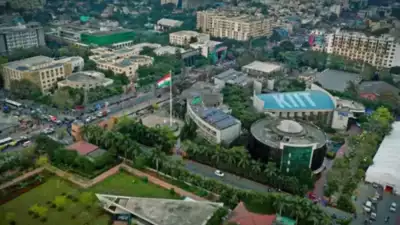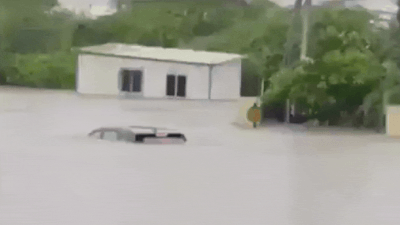DEHRADUN/PITHORAGARH: In a quiet corner of Bhubaneswar, a hostel room now stands empty. Its door, identical to the others in the corridor, remains locked. Inside, all traces of the young woman who once lived there—who dreamed of building a future—are gone. Yet beyond these walls, Prakriti Lamsal’s name echoes loudly. In Odisha, where students protest. In Kathmandu, among Nepal’s student community. Within government offices and even the Prime Minister’s Office.
No Action Taken: Father Seeks Justice for KIIT Student
Days after Prakriti’s tragic death, her father, Sunil Lamsal, continues his search for answers, placing his faith in India’s justice system. “Since the era of the Ramayana, both countries have shared the ‘roti-beti’ bond,” he told TOI over the phone from Kathmandu. “I cannot be in Odisha throughout the investigation, but I trust that the Indian government will do what is right.”
The roti-beti ka rishta—a bond of shared livelihoods and intermarriages—has long connected Nepal and India. Prakriti, 20, was one such daughter. A third-year computer science student at Kalinga Institute of Industrial Technology (KIIT), she had left her home in Bhairahawa, just 5 km from the Indian border at Gorakhpur, to chase her aspirations in India. She had promised her family she would return as an engineer.
The Lamsals first learned about KIIT through university events in Kathmandu. Two of Prakriti’s cousins, Anurodh and Siddhant, were also students there. Like many international students, she arrived with hopes—ambitious but not uncommon: earn a degree, secure a job, and build a better future, particularly for her beloved nine-year-old brother, Prayas.
“She wanted to give him the best education, to shape his future,” Lamsal said. “She was shy but always ready to help others. A bright career has been cut short. I have lost my daughter—she wanted to set an example. Those responsible must not go unpunished.”
Ignored Complaints and a Tragic End
Prakriti was soft-spoken, reserved—but at KIIT, she had raised her voice. Twice. She had filed two complaints against a fellow student, alleging harassment. The university responded by calling both students for “counselling.” Her family, however, was never informed.
“No action was taken,” Lamsal said. “Firm action could have saved her.”
On February 16, just two hours before her death, Prakriti called her mother. They spoke about her studies and family matters. “She gave no sign of distress,” her father recalled. “We had no idea of the burden she was carrying.” Hours later, they received the devastating news.
Protests and Diplomatic Interventions
Following her death, over 1,500 Nepalese students at KIIT erupted in protests. Reports suggest that more than 500 students were asked to vacate their hostels amid the unrest. The Nepalese embassy intervened, sending officials to assess the situation and provide support.
“If it weren’t for the students, this might never have come to light,” Lamsal said.
On Tuesday, Nepal’s Prime Minister K P Sharma Oli personally reached out to Prakriti’s parents, assuring them of his government’s commitment to seeking justice. “This news has deeply saddened us. We cannot undo what has happened, but an investigation is underway,” he told them, placing his faith in Indian authorities.
Prakriti’s father, choking back tears, replied: “Many Nepali children study in India. We cannot allow such incidents to repeat. Our government must take proactive steps.” His words carried both gratitude and urgency—a plea and a warning.
Nepal’s Foreign Minister Arzu Rana Deuba has also spoken with Odisha CM Mohan Charan Majhi, demanding an “impartial investigation, legal action, and accountability.” Additionally, Nepal’s National Human Rights Commission has urged its Indian counterpart to ensure Prakriti’s case does not become just another forgotten file.
“We are waiting, watching,” Lamsal said. “Nepal is too.”




